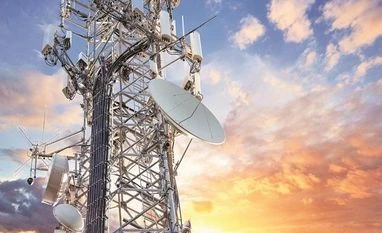The Telecom Regulatory Authority of India (TRAI) has agreed to fresh consultations on regulating Over The Top (OTT) services, after consistent demands for it were put forth by the Department of Telecommunications (DoT), several officials told Business Standard.
Also, given the fast spread of the OTT ecosystem, TRAI has focussed on the need to bring together stakeholders who differ on its key aspects, they said.
On Friday, TRAI brought out a new consultation paper that aims to discuss 14 specific points regarding OTTs, including their definition, difference between OTT communication services and telecom services and a possible collaborative mechanism between them.
In a key move, the regulator has also sought comments on whether OTT services should potentially banned under certain circumstances and what kind of a mechanism may be adopted for this.
"The arguments raised by DoT on several occasions in favour of regulations, has triggered the latest consultations. It has also been observed that many stakeholders are increasingly pointing out the real life implications of the OTT ecosystem, so it was felt that a new consultation would benefit all," a senior official said.
Change in stance
The telecom sector regulator had once before brought out a consultation paper on a possible regulatory framework for OTT services back in November 2018.
The paper had concluded that since these entities aren't governed by the license conditions applicable to Telecom Services Providers (TSPs), the need to regulate them to ensure protection of consumers privacy and data security was urgent and inescapable.
However, in September 2020, TRAI had subsequently recommended that no comprehensive regulatory framework for various aspects of OTT services was required, and especially ruled out any regulatory intervention for issues related to the privacy and security of OTT services.
DoT has now pointed out that TRAI had not provided any detailed justification for the same and the authority's directions have been at variance with those of the department.
"TRAI has duly rebuffed all the points DoT made against the regulators earlier recommendations," another official said.
However, he pointed out that TRAI has now also said the latest consultations are in keeping with the National Digital Communications Policy 2018 which has a policy goal of "Ensuring a holitic and harmonized approach for harnessing Emerging Technologies'.
Sudden move
However, OTT industry insiders expressed surprise at the latest consultation paper, saying that the previous rounds had deliberated extensively in the same issues.
The call to regulate OTTs has come mostly from TSPs so far, who argue that OTT communication and satellite-based services offer audio and video calls and messaging without paying for licence or spectrum.
While measures to diffuse the situation had been suggested, they could not take off.
"The DoT was supposed to invite telecom companies and communication apps for a joint discussion on the proposal of imposing interconnect usage charge or revenue sharing earlier this year, but that didn't happen," a senior figure at a communications OTT said.
Industry representations on the matter have so far been separate and sporadic, with each side arguing against the other.
Consensus on the issue may lead to a formal mechanism by which the extent of such charges can be decided, officials had said back in March.
The Cellular Operators Association of India (COAI) – which has all three private telecom service providers (TSPs) Reliance Jio, Bharti Airtel, and Vodafone Idea as its members – has suggested levying a licensing fee of 8 per cent on OTTs on a recurring basis.
The DoT has received suggestions to also impose a licence fee on a recurring basis on OTTs as a percentage of their adjusted gross revenue (AGR).
Last year, the COAI had pointed out to the government that it will be able to collect up to Rs. 800 crore of taxes from OTTs if it imposes taxes on them. If the TSPs receive revenue from OTTs, it will then count towards the TSPs’ annual gross revenue calculations, and subsequently be taxed by the government, it had argued.
Meanwhile, the Internet & Mobile Association of India (IAMAI), which represents online businesses in India, has opposed the demand, calling it “a covert attempt to dilute net neutrality in India”. It has said the sending party network pays (SPNP) model would sound the “death knell” for the digital economy.
Unlock 30+ premium stories daily hand-picked by our editors, across devices on browser and app.
Pick your 5 favourite companies, get a daily email with all news updates on them.
Full access to our intuitive epaper - clip, save, share articles from any device; newspaper archives from 2006.
Preferential invites to Business Standard events.
Curated newsletters on markets, personal finance, policy & politics, start-ups, technology, and more.
)